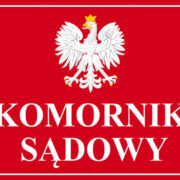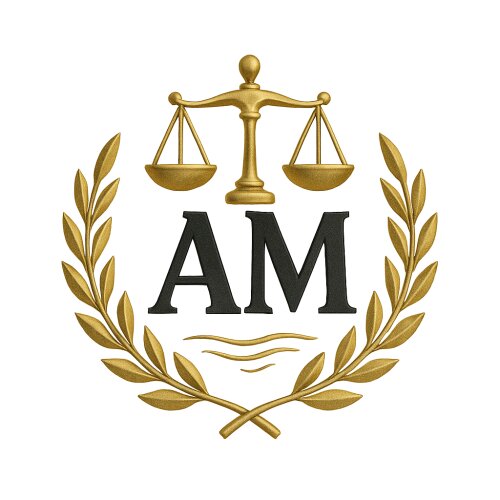Best Sustainable Finance Lawyers in Mława
Share your needs with us, get contacted by law firms.
Free. Takes 2 min.
List of the best lawyers in Mława, Poland
About Sustainable Finance Law in Mława, Poland
Sustainable finance covers legal and regulatory rules that steer capital toward activities with environmental and social benefits. In Mława, as in the rest of Poland, sustainable finance is shaped by a mix of European Union rules, national Polish law and local municipal practice. Key themes include green lending and green bonds, disclosure and reporting obligations for financial institutions and large companies, environmental and planning permits for renewable energy or energy-efficiency projects, and public procurement that favors low-carbon solutions. Local authorities in Mława handle land-use planning, building permits, local incentives and administrative approvals that affect the feasibility and timing of sustainable investment projects.
Why You May Need a Lawyer
Legal help is often necessary because sustainable finance sits at the intersection of finance, environmental regulation and public administration. Common situations where a lawyer can add value include:
- Structuring or documenting green loans, bonds or investment funds to meet legal and market standards.
- Advising on compliance with EU and Polish disclosure and taxonomy rules that affect investors and large companies.
- Securing environmental approvals, planning consent and building permits for renewable energy, energy-efficiency upgrades or sustainable construction projects.
- Carrying out regulatory due diligence and ESG risk assessments for mergers, acquisitions or financing negotiations.
- Representing clients in public procurement procedures that include green criteria or defending against procurement challenges.
- Handling disputes with regulators, grid operators, contractors or municipalities, and appealing administrative decisions.
Local Laws Overview
Sustainable finance in Mława is influenced by several legal layers. The most relevant aspects are:
- European framework - EU rules such as the Taxonomy Regulation, the Sustainable Finance Disclosure Regulation and corporate sustainability reporting rules set criteria and disclosure expectations that flow down to Polish companies and financial advisers.
- National implementing rules - Polish ministries and regulators translate EU standards into domestic obligations, guidance and supervisory practices. The Polish Financial Supervision Authority oversees financial-sector disclosures and market practices.
- Energy and environmental law - national statutes govern renewable energy deployment, grid connections, emissions and environmental impact assessments. Projects often require environmental decisions and compliance with the national environmental protection regime.
- Spatial planning and building law - a local project must comply with the local spatial development plan or obtain zoning decisions under the Planning and Spatial Development Act, and meet requirements under Building Law for permits and technical approvals.
- Public procurement and state aid - green public tenders and potential public funding for sustainable projects are governed by public procurement law and state aid rules.
- Local municipal rules - the Mława municipal office applies local ordinances, fees, local incentives and permit procedures that can materially affect project costs and timelines.
Frequently Asked Questions
What counts as a sustainable finance activity in Mława?
Sustainable finance activities are investments or financial services that support environmental goals such as climate change mitigation, adaptation, pollution prevention, circular economy, biodiversity protection or social objectives. In practice this includes financing renewable energy, energy-efficiency retrofits, sustainable transport, green buildings and certain social housing or community projects that meet legal and market standards.
Do small businesses in Mława need to follow EU disclosure rules?
Most EU sustainability disclosure rules apply primarily to financial market participants, asset managers, institutional investors and large companies. Small businesses are generally not directly subject to the biggest disclosure obligations. However, small businesses that seek financing, participate in public procurement or act as suppliers to larger companies may need to provide ESG information to meet counterparties' requirements.
What permits are typically required for a local renewable energy project?
Common requirements include a local land-use or zoning decision, environmental impact assessment or environmental decision if thresholds are met, building permit under Building Law, and a grid connection agreement with the distribution system operator. The exact permits depend on project size, site conditions and technology.
How can I check whether my project meets the EU Taxonomy?
Determining Taxonomy alignment requires matching your project activity to the Taxonomy's technical screening criteria, verifying substantial contribution to an environmental objective and confirming no significant harm to other objectives. A legal or technical advisor familiar with the Taxonomy can perform an assessment and prepare documentation for investors or lenders.
Are there local incentives for green investments in Mława?
Local incentives vary. Municipalities can offer reduced local fees, expedited permit processes or land-use concessions in some cases. Regional and national incentive programs, plus EU funds administered at the voivodeship level, can also support green projects. A lawyer can help identify applicable incentives and any conditions attached to them.
What risks should I consider when accepting green financing?
Key risks include reputational and contractual liability if green claims are inaccurate, failure to meet reporting covenants, changes in regulation that affect project economics, delays in permits or grid connection, and potential clawback of incentives if conditions are not met. Clear drafting and compliance procedures reduce these risks.
How does public procurement in Mława treat green tenders?
Public contracting authorities may include environmental or social evaluation criteria and favor offers with lower life-cycle costs or reduced emissions. Bidders must meet specified technical and qualification requirements. Procurement challenges can arise if criteria are unclear or improperly applied.
Can foreign investors finance projects in Mława and what legal issues arise?
Foreign investors can finance projects, but they must meet Polish legal requirements on property, corporate registration, permits and possibly sector-specific restrictions. Tax, repatriation of profits and EU funding eligibility are additional legal and practical considerations. Local counsel can help navigate registration and compliance obligations.
How long do administrative procedures usually take?
Timing depends on the procedure. Planning and zoning processes, environmental assessments and building permits can take several months to over a year, depending on complexity and the need for consultations or appeals. Early legal advice can help identify likely timelines and streamline applications.
How do I find a qualified lawyer in Mława for sustainable finance matters?
Look for lawyers or law firms with experience in environmental law, energy law, public procurement and financial regulatory compliance. Check memberships in local bar associations and professional recommendations. An initial consultation helps assess experience, language ability and fees.
Additional Resources
Helpful contacts and institutions to consult when seeking legal or practical guidance include:
- Urząd Miasta Mława - municipal administration for local permits, zoning and local incentives.
- Masovian Voivodeship Office - regional development programs and EU fund administration.
- Wojewódzki Inspektorat Ochrony Środowiska - regional environmental inspectorate for environmental compliance.
- Regional Directorate for Environmental Protection - for protected area and biodiversity matters.
- Urząd Regulacji Energetyki - national energy regulator for grid and energy sector rules.
- Komisja Nadzoru Finansowego - financial sector regulator that provides guidance on sustainable finance disclosures.
- Ministry of Climate and Environment - national policy and implementation of EU environmental law.
- Local courts and land registries - for property records and disputes.
- Local and national professional bodies - the regional bar association or legal advisers chamber to find qualified counsel.
- Industry and NGO organizations such as green building councils, renewable energy associations and climate foundations that provide technical and market guidance.
Next Steps
If you need legal assistance with a sustainable finance matter in Mława, follow these steps to get started:
- Gather core documents - project description, contracts, permits, land titles, financing terms and any prior correspondence with authorities.
- Define your objective - financing, permitting, compliance, dispute resolution or procurement bidding.
- Book an initial consultation with a lawyer experienced in environmental, energy or financial regulatory law - prepare specific questions and provide the gathered documents.
- Ask about the lawyer's relevant experience, proposed approach, estimated timeline and fee structure in an engagement letter.
- Use the lawyer to map required permits, reporting obligations and compliance tasks, and to draft or negotiate contracts that reflect green commitments and reporting duties.
- Keep regulatory deadlines and reporting cycles on a compliance calendar, and plan for monitoring and independent verification where required.
Legal issues in sustainable finance are often technical and time-sensitive. Early advice from a local lawyer will reduce delays, uncover applicable incentives and help ensure that your project meets both legal requirements and market expectations.
Lawzana helps you find the best lawyers and law firms in Mława through a curated and pre-screened list of qualified legal professionals. Our platform offers rankings and detailed profiles of attorneys and law firms, allowing you to compare based on practice areas, including Sustainable Finance, experience, and client feedback.
Each profile includes a description of the firm's areas of practice, client reviews, team members and partners, year of establishment, spoken languages, office locations, contact information, social media presence, and any published articles or resources. Most firms on our platform speak English and are experienced in both local and international legal matters.
Get a quote from top-rated law firms in Mława, Poland — quickly, securely, and without unnecessary hassle.
Disclaimer:
The information provided on this page is for general informational purposes only and does not constitute legal advice. While we strive to ensure the accuracy and relevance of the content, legal information may change over time, and interpretations of the law can vary. You should always consult with a qualified legal professional for advice specific to your situation.
We disclaim all liability for actions taken or not taken based on the content of this page. If you believe any information is incorrect or outdated, please contact us, and we will review and update it where appropriate.









